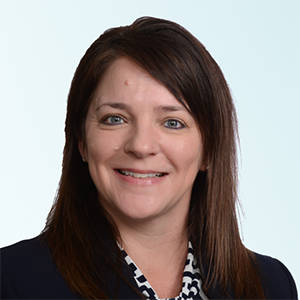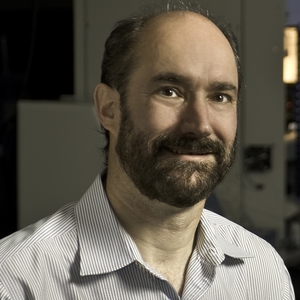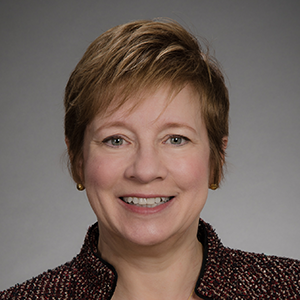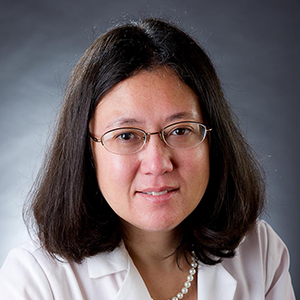Session Abstract – PMWC 2018 Silicon Valley
Session Synopsis: Genetic testing can be a daunting experience, yet the return of genetic findings allows the provision of clinically actionable results for findings associated with disease risks and anticipated medical needs. Obtaining this information back is therefore of high value to patients who would have otherwise not learned of their genetic risk. This session will focus on the advantages of patients getting genetically tested and learning about a genetic predisposition and potential associated health impacts.
Session Chair Profile
Ph.D., FACMG, Director and Professor, Autism & Developmental Medicine Institute, Geisinger

Biography
Dr. Christa Lese Martin, PhD, FACMG, is a Professor and the founding Director of the Autism & Developmental Medicine Institute at Geisinger. She is Board-certified by the American Board of Medical Genetics and Genomics (ABMGG) in Clinical Cytogenetics. Her research focuses on using a “genetics-first” approach to characterize neurodevelopmental and neuropsychiatric disorders, including autism, with an ultimate goal of developing precision health-driven treatments. She also focuses on evidence-based approaches to understanding genomic variation. Dr. Martin is one of the Principal Investigators of the NIH-funded Clinical Genome Resource (ClinGen) and serves as a Co-Chair of the ACMG Secondary Findings Working Group. At Geisinger, she is part of the leadership team for the MyCode Community Health Initiative – a groundbreaking precision health initiative bringing genomic medicine into everyday healthcare. Dr. Martin completed her PhD in Human Genetics at the University of Pittsburgh. She did her postdoctoral training at the University of Chicago in the Department of Human Genetics.
Speaker Profile
Ph.D., Professor & Chair, Stanford Center of Genomics & Personalized Medicine
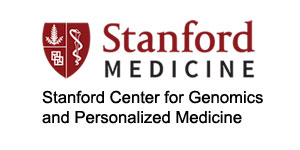
Biography
Michael Snyder is the Stanford Ascherman Professor and Chair of Genetics and the Director of the Center of Genomics and Personalized Medicine. Dr. Snyder received his Ph.D. training at the California Institute of Technology and carried out postdoctoral training at Stanford University. He is a leader in the field of functional genomics and proteomics. His laboratory study was the first to perform a large-scale functional genomics project in any organism, and currently carries out a variety of projects in the areas of genomics and proteomics both in yeast and humans. These include the large-scale analysis of proteins using protein microarrays and the global mapping of the binding sites of chromosomal proteins. His laboratory built the first proteome chip for any organism and the first high resolution tiling array for the entire human genome.
Speaker Profile
M.D., Ph.D., Head and Professor, Division of Medical Genetics, University of Washington

Biography
Professor Gail Jarvik M.D., Ph.D. is an internist and medical geneticist who holds the Arno G. Motulsky Endowed Chair in Medicine and heads the Division of Medical Genetics at the University of Washington in Seattle. She cares for adult medical genetics patients. Her research focuses on the statistical genetic analysis of common diseases, including cancer, vascular disease, and dementia. She has broad research interests in the implementation of genomic medicine. Her active research in biomedical ethics, includes returning genomic research results to participants and the impact of regulations on genomic research. She is a PI in both the Electronic Medical Records and Genomics (eMERGE) and clinical sequencing exploratory research (CSER) consortia.
Speaker Profile
M.D., Ph.D., Kennedy Family Professor of Pediatrics and Medicine

Biography
Wendy Chung, M.D., Ph.D. is a medical and molecular geneticist and the Kennedy Family Professor of Pediatrics and Medicine. Dr. Chung enjoys the challenges of genetics as a rapidly changing field of medicine and strives to facilitate the integration of genetic medicine into all areas of health care in a medically, scientifically, and ethically sound, accessible, and cost effective manner. Dr. Chung directs NIH funded research programs in human genetics of autism, obesity, breast cancer, pulmonary hypertension, and birth defects including congenital diaphragmatic hernia and congenital heart disease. She leads the Precision Medicine Resource in the Irving Institute at Columbia University. She was the original plaintiff in the Supreme Court case that overturned the ability to patent genes and the Institute of Medicine Committee on Genetic Testing.
Speaker Profile
M.D., CMO, Invitae

Biography
Dr. Nussbaum was chief of the Division of Genomic Medicine at UCSF Health where he also held leadership roles in the Cancer Genetics and Prevention Program beginning in January 2009 and the Program in Cardiovascular Genetics beginning in July 2007. From April 2006 to August 2015, he served as a member of the UCSF Institute for Human Genetics. Prior to joining UCSF Health, Dr. Nussbaum was chief of the Genetic Disease Research Branch of the National Human Genome Research Institute, one of the National Institutes of Health, from 1994 to 2006. He is a member of the Institute of Medicine and a fellow at the American Academy of Arts and Sciences. Dr. Nussbaum is a board-certified internist and medical geneticist who holds a B.S. in Applied Mathematics from Harvard College and an M.D. from Harvard Medical School in the Harvard-MIT joint program in Health Sciences and Technology. He completed his residency in internal medicine at Barnes-Jewish Hospital and a fellowship in medical genetics at the Baylor College of Medicine.


